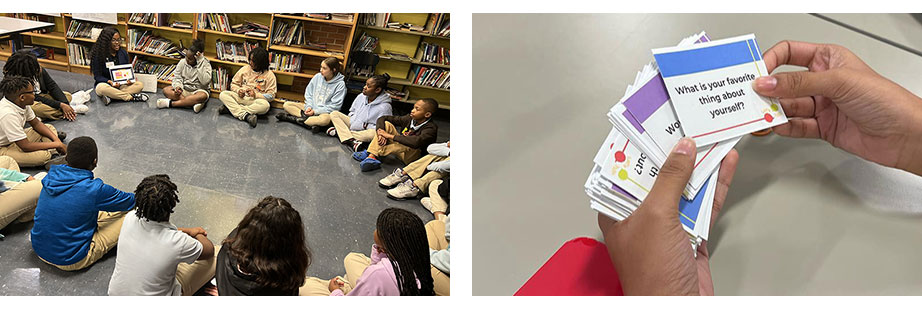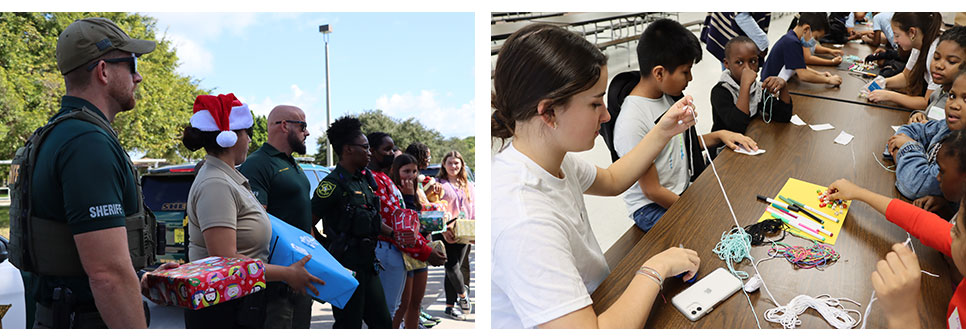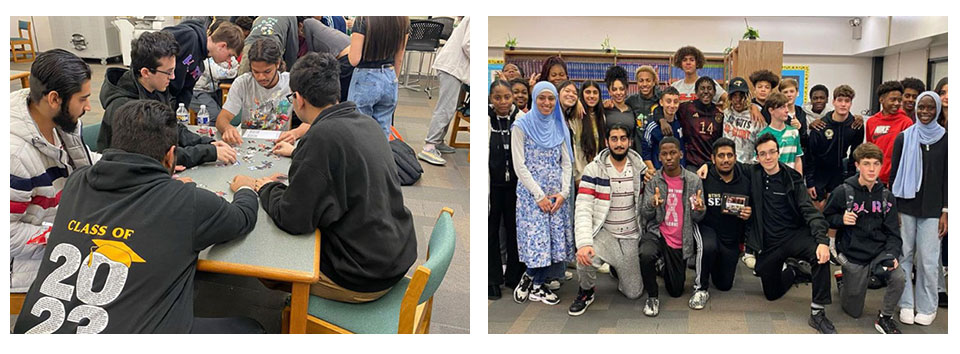Every day across the country, decisions are being made at the local, state, and federal levels regarding school safety and security. We see lawmakers, elected officials, and school administrators speaking to these improvements and what is being done to keep students, staff, and visitors safe while on K-12 or higher education campuses.
However, the people arguably most impacted by these decisions — the students — often aren’t included in the process when their voices should be just as elevated and heard. That’s where Invent2Prevent comes in.
Established in 2021 by the McCain Institute and EdVenture Partners, and fully funded by the Department of Homeland Security’s Center for Prevention Programs and Partnerships, Invent2Prevent is an experiential learning program that tasks high school and college students with creating and implementing their own product, tool or initiative to address targeted violence, hate or terrorism in their communities.
“DHS is always seeking ways to expand our work with communities across the country to help prevent acts of targeted violence. Invent2Prevent empowers young people to help prevent this violence using their experiences and knowledge of the issues,” said Deputy Secretary of Homeland Security John Tien. “These students are proof that the next generation of leaders can build a more secure and prosperous nation for everyone through key tools such as connection, communication, and digital media.”
Since its inception, more than 700 students have participated across 35 states as well as the District of Columbia. I2P programs have been established at 27 high schools and 77 colleges and universities. These unique and impactful initiatives developed by young minds come at a crucial time as targeted violence continues to increase across the country, including in K-12 schools. A 2021 report found that among students ages 12 to 18, from the 2015-16 school year to the 2017-18 school year, hate crimes and physical attacks with a weapon nearly doubled, threats of attack with a weapon increased by more than 46% and sexual assaults other than rape increased by 17%.
As part of a semester-long project, each team evaluated a threat facing their school or community and created a program to better educate a target audience on potential vulnerabilities that could lead individuals to carry out acts of targeted violence or hate, according to a DHS press release. On Jan. 25, the finalists from three high schools and student organizations descended on Washington, D.C., to present these projects.
To make it to the finals, these groups already beat out 19 other teams for the chance to win money to support their programs. Along with four other associates, I had the privilege yet extremely difficult task of judging these creative and thoughtful projects. Here’s more on those initiatives.
Let’s Talk
Taking home first place, Let’s Talk is an interactive game invented by students from the Louisiana Youth Advisory Council. The game was created to prevent bullying and social isolation by establishing friendships and connections while promoting inclusivity. The game’s main goal is to get students more comfortable with vulnerability and talking about their feelings.
The students came up with the idea after noticing the effects of the pandemic due to social isolation. The group says the game focuses on expanding and rebuilding the bonds COVID destroyed by helping kids talk about themselves, their interests, and the problems they face. It is geared toward fourth and fifth graders.
With written consent from parents, the game can be played in two ways: in small groups or as a classroom discussion. For small groups, the creators recommend students be put into groups of four to five. Questions are separated into three levels: light (ex: What do you like doing after school? What is your favorite song? What is something kind you have done for a friend?), medium (ex: How can you help someone who feels left out? What bugs you? What is your happiest memory?), and deep (ex: Do you feel like you have someone you can confide in? Have you ever been bullied? What is something people misunderstand about you?). Students can pick which type of question they want to answer and their choice corresponds with how many dice they roll. For example, if a student answers a light question, they would only roll one die; for a medium question, they would roll two. This method encourages students to answer deeper, more difficult questions, enabling the students to make connections while earning points.
Whole classroom discussions are based on a three-week curriculum. Teachers randomly pull a question for students to answer and can use the data to group students together who have similar interests or experiences. During Week 1, the teacher asks yes/no or true/false questions and students anonymously write down their answers. During Week 2, students provide more lengthy written responses that are still anonymous, and the teacher reads them to the class. By Week 3, students are likely to be more comfortable and are asked to raise their hands and share their answers with the class. After the three weeks is over, teachers are encouraged to continue with the Week 3 formatting of free sharing with the class.

Bonding Buddies
Bonding Buddies, an initiative started by Pompano Beach High School’s Make Our Schools Safe (MOSS) Club, focuses on fostering relationships to reduce social isolation among at-risk elementary school students.
Pompano Beach Elementary School’s principal selected 70 students, ages six to nine, to participate in the student mentoring program. These students, who come from economically disadvantaged homes or have shown signs of sadness or withdrawal from social situations, were matched up with MOSS Club students. Through various games, activities, and icebreakers, meaningful relationships have been established.
For one of its events, the group partnered with the Broward Sheriff’s Office to conduct a toy and clothing drive, collecting more than 240 toys and 1,600 clothing items. Each elementary school student was handed at least two toys — one by an officer — allowing law enforcement to develop relationships with students in a positive environment.
During another event dubbed “Buddy Day,” MOSS members made friendship bracelets with the elementary students. The students were also placed in randomized groups for the opportunity to meet other peers.
Since the Invent2Prevent competition, Bonding Buddies has also partnered with first-place winner Let’s Talk and introduced the game to their students.

Peace by Piece
Peace by Piece was founded by students from Burlington Township (N.J.) High School. The club aims to create acceptance and understanding of all people through various activities throughout the year. After noticing a rise in religious-based acts of hate, the students decided their first project would focus on spreading awareness and information regarding the Islamic religion.
The group’s targeted audience for this project was students ages 14 to 18 who may be uneducated about Islam. The Dec. 14 event was a two-hour long session where students learned about misconceptions of Islam and its followers — Muslims — through discussions and activities. Students had to solve a puzzle that created dialogue around the religion and there were stations with different activities that provided a deeper understanding of Islam.
One common misconception that was addressed was why Muslim women wear a hijab. Food and beverages were provided and students had the opportunity to win prizes like gift cards and school gear.

Violence Prevention is Possible
Children aren’t born with hate; they are taught it. Hate can then morph into violence, particularly for those with few resources who lack meaningful connections with others. Creating programs like these and implementing them early on in students’ lives will undoubtedly prevent acts of violence or hate.
Sitting through these presentations, I was truly in awe at the poise, intelligence, and pride each student exuded. To think of the time and energy they have put into these projects on top of their academics and other extracurriculars is truly remarkable. The current generation of students has seen more school violence than any generation before them, and it’s clear they’ve had enough.






